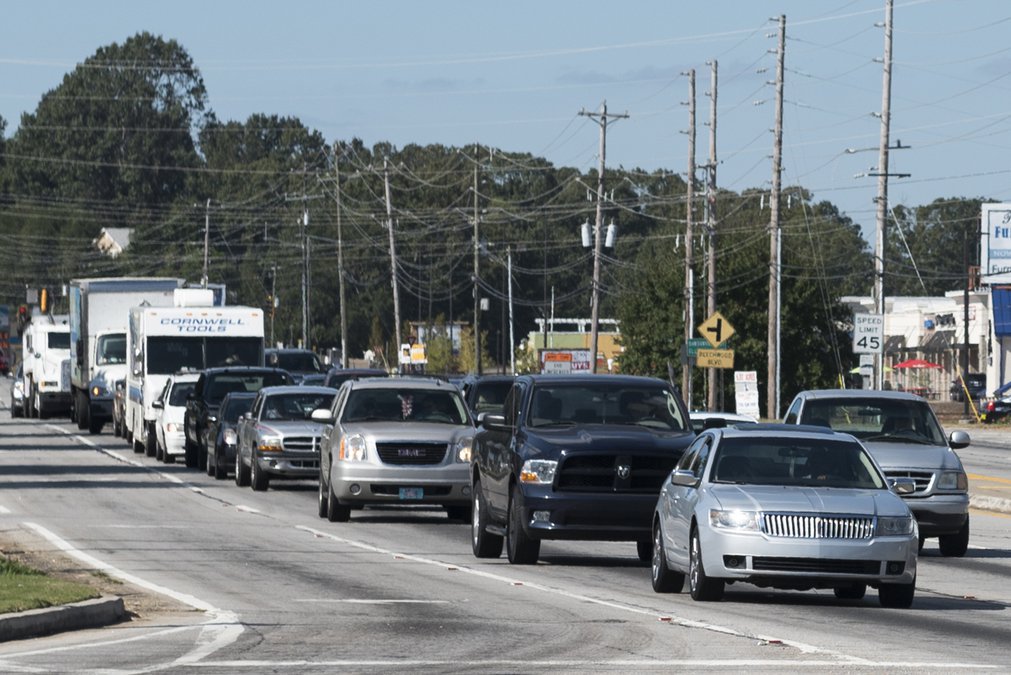Hall County can proceed with four transportation studies — including one examining Dawsonville Highway-McEver Road traffic flow — now that it has been approved for $520,000 in federal road planning money.
Dawsonville Highway-McEver Road congestion among transportation issues to get studied in 2018

